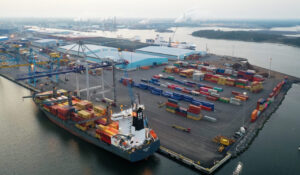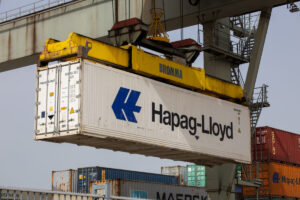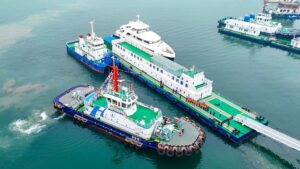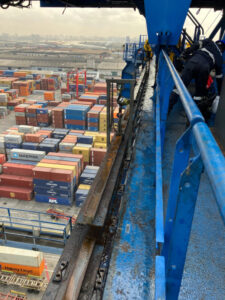The Port of Oakland has shut its terminals as clerks represented by International Longshore and Warehouse Union (ILWU) staged a walkout.
Longshoremen initiated labour action on 2 November, as one public advisory from Port of Oakland noted: “Our terminals are reporting terminal interruptions this morning that may lead to delays.”
Local media reported that a spokesperson for ILWU denied the walkouts were an official action of the union despite stalled negotiations with the Pacific Maritime Association (PMA).
SFGate reported that the clerk walkout happened because workers have not been paid on time, with 200 outstanding wage claims dating back to June.
Sources at the terminals described closed gates with piles of containers and trucks waiting to be loaded.
“Our customers are expecting deliveries and we can’t make those deliveries,” AB Trucking President Bill Aboudi said.
“It just snowballs. Every day that we’re shut down is like five days of catch-up.”
Back in July, Some 450 Port of Oakland dockworkers were unable to report to work as truckers protesting the Assembly Bill 5 (AB5) law blocked access to one of the port’s main terminals.
READ: Trucker protests wham Port of Oakland’s volumes
The Port of Oakland has since released: “Protesters have cleared the seaport area and our international marine terminals will try to reopen for tonight’s work shift.
“Yesterday’s labour action closed three of our international marine terminals. Our domestic terminal remained open. Operations resumed by yesterday evening and today we expect continued normal shipping operations.”
Port’s spokespeople said they are “hopeful the ILWU and the PMA can resolve their issues so that the flow of international commerce is not further impacted”.
The Ports of Los Angeles and Long Beach have not reported terminal shutdowns.
Workers at the Port of Oakland and other 28 ports across the US have been operating without a contract since July.
Most recently, Port of Los Angeles Chief Executive, Gene Seroka, said a deal might not be reached for months.
#BREAKING: A standstill at the @PortofOakland this morning as longshoreman walk off the job. Amid stalled contract negotiations with the Pacific Maritime Association, these workers are demanding better pay and benefits. All four port terminals are shutdown. @KCBSRadio. pic.twitter.com/H6vw6oIMQH
— Mike DeWald (@mike_dewald) November 2, 2022
132,599 loaded TEU passed through the port, compared to 143,991 TEU in September 2021.








